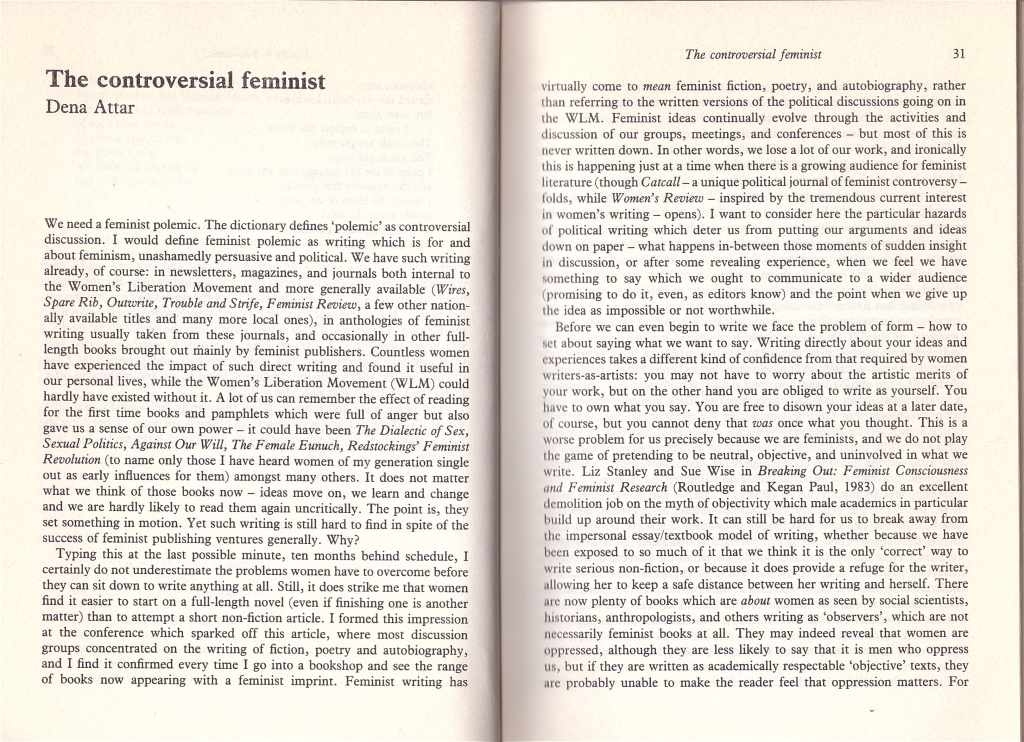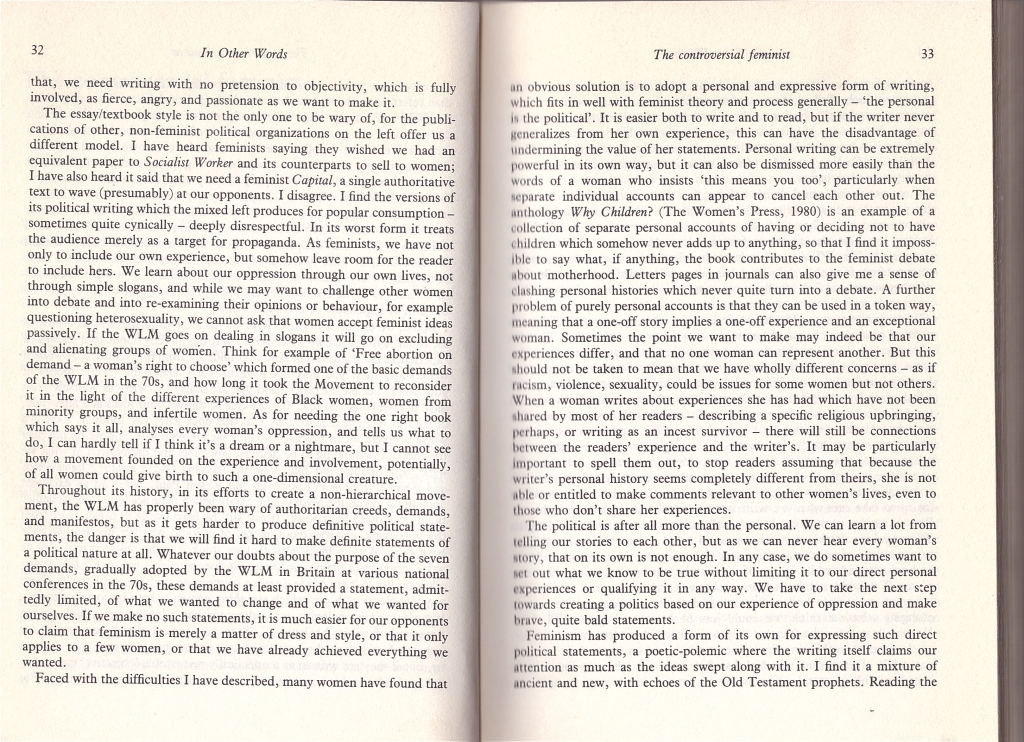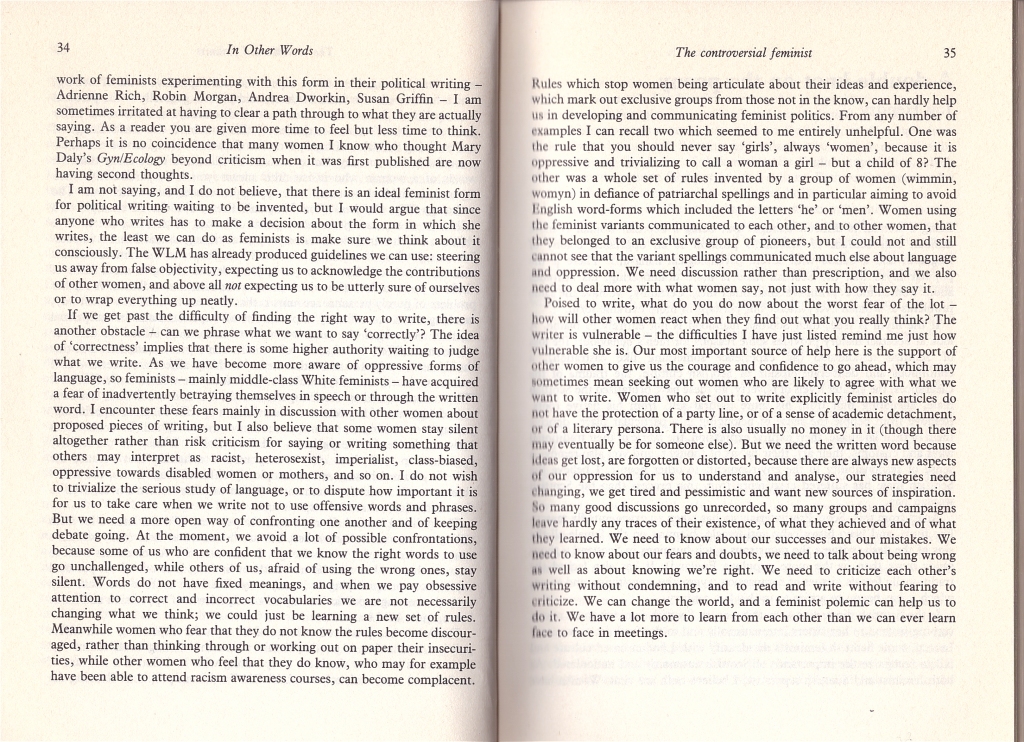Jenny Lindsay has written a piece that goes from quiet to angry, from moderate and reasonable to fierce, retrospective to poetically prophetic. It pins down a particular time in a specific community and place – a section of the literary, arts and live performance establishment in Scotland with some further out ripples – that fell for a pernicious fashion of witchhunting. As ever, there are many who would rather join in with the witchfinders than run the risk of being suspected themselves.
She does not write as a victim although she was undoubtedly victimised. After being unfairly and thoroughly denounced herself she does not denounce named individuals but manages to rise far above her detractors. Jenny Lindsay warns that through their timid compliance and adherence to whatever the new rules might be today, those who either denounced or passively betrayed her will be left themselves with nothing much of interest to say to anyone. Is she being romantic in expecting more and better of people who want to be known as writers? There’s a history of official writers’ unions controlling access to publishing and being controlled in turn to make sure no unorthodox, non-approved ideas escaped into the public realm. But then looking back we tend to be more interested in what the writers they expelled or excluded had to say.
Her article, published in The Dark Horse Issue 2020 this autumn, reminded me of another time in Edinburgh a lifetime ago – the 1983 conference on feminist writing. It was not an academic conference but an event filled with writers and feminists. My paper later became an article in the 1987 anthology In Other Words: Writing as a feminist edited by Gail Chester and Sigrid Nielsen. Much of it resonates today. Here it is. The book was republished by Routledge in 2015. Like Jenny Lindsay’s article it is about the importance of not shutting up, especially when people are trying to shut you up.
I’m also struck that it was already relevant in 1987 to make points like
The idea of ‘correctness’ implies that there is some higher authority waiting to judge what we write…
…some women stay silent altogether rather than risk criticism for saying or writing something that others may interpret as racist, heterosexist, imperialist, class-biased, oppressive towards disabled women or mothers, and so on. I do not wish to trivialize the serious study of language, or to dispute how important it is for us to take care when we write not to use offensive words and phrases. But we need a more open way of confronting one another and of keeping debate going…
…when we pay obsessive attention to correct and incorrect vocabularies we are not necessarily changing what we think; we could just be learning a new set of rules.




I saw this in Batterseaâs annual report, a member writing an obit.
LikeLike